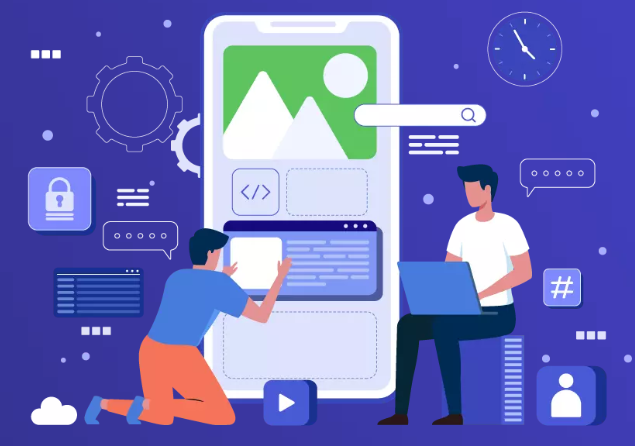Picture this: It’s a chilly Tuesday morning in 2025, and you’re scrolling through your favorite shopping app while sipping your perfectly brewed coffee (thanks, smart coffee maker!). Suddenly, an ad pops up for a cozy sweater in your favorite color, style, and size. It’s like the app read your mind! Well, welcome to the world of AI-driven hyper-personalization, where your digital experiences are tailor-made just for you.
The Rise of AI in Marketing
Remember the days when we thought personalization meant slapping someone’s name on an email? Oh, how far we’ve come! In 2025, AI has revolutionized the marketing landscape, turning what was once a marketer’s pipe dream into an everyday reality.
Gone are the days of one-size-fits-all marketing campaigns. Today’s consumers expect brands to anticipate their needs before they even realize them themselves. It’s like having a personal shopper who knows your style better than you do – minus the awkward small talk.
How AI is Changing the Game
Predictive Analytics: The Crystal Ball of Marketing
AI algorithms are now so sophisticated that they can predict what you’ll want before you even know you want it. It’s like having a psychic friend, but one that actually gets it right (sorry, Madame Zelda from the county fair).
These predictive models analyze vast amounts of data, including browsing history, purchase patterns, and even weather conditions, to create a hyper-personalized experience for each customer. Imagine walking into a store and finding an outfit perfectly curated for your upcoming beach vacation – that you haven’t even booked yet!
Conversational Commerce: Your New Shopping Buddy
Remember when chatbots were about as helpful as a chocolate teapot? Well, in 2025, AI-powered conversational commerce has come a long way. These digital assistants can now engage in natural, human-like conversations, offering personalized product recommendations and support.
It’s like having a knowledgeable friend who’s always available to chat about your latest obsession – whether it’s vintage vinyl records or vegan cheese alternatives.
Real-World Examples of AI Personalization
Netflix: The Ultimate Couch Potato Enabler
Netflix has taken its “recommended for you” game to a whole new level. In 2025, it won’t just suggest shows based on what you’ve watched; it predicts what mood you’ll be in and serves up the perfect content to match. Feeling blue on a rainy day? Here’s a heartwarming comedy. Just aced a job interview? Time for an inspirational documentary!
Starbucks: Your Personal Barista
Starbucks has always been at the forefront of personalization, but now they’ve outdone themselves. Their AI-powered app doesn’t just remember your usual order; it suggests new drinks based on your taste preferences, the weather, and even your current stress levels. Rough day at work? Here’s a calming chamomile latte with a splash of lavender. Now that’s what I call mind-reading!
The Benefits of Hyper-Personalization
Hyper-personalization isn’t just about making marketers’ lives easier (although that’s a nice bonus). It’s about creating meaningful connections between brands and consumers. When done right, it can lead to increased customer engagement, higher conversion rates, and improved customer retention. Plus, let’s be honest – who doesn’t love feeling special? It’s like when the barista remembers your name and order, but on a much grander scale.
Challenges and Considerations
Of course, with great power comes great responsibility. As we dive deeper into the world of AI-driven personalization, we must also consider the ethical implications. Privacy concerns, data security, and the potential for algorithmic bias are all issues that need to be addressed. We don’t want to end up in a dystopian future where our AI overlords know us better than we know ourselves. Although, if they could remind me where I left my keys, that would be great.
The Future is Personal
As we look ahead to 2025 and beyond, one thing is clear: the future of marketing is personal. By harnessing the power of AI, brands can create experiences that are not just tailored, but truly transformative. So the next time you receive a perfectly timed offer for that gadget you’ve been eyeing, or stumble upon a playlist that seems to read your mind, remember – it’s not magic, it’s AI. And who knows? Maybe by 2026, it’ll be able to predict the winning lottery numbers. A marketer can dream, right?

